When we think of essential minerals, we usually focus on well-known ones like magnesium, calcium, and zinc. But there’s another critical mineral that rarely gets the attention it deserves: lithium.
While most people associate lithium with psychiatric medication, it’s actually a naturally occurring trace mineral found in soil, water, and certain foods.
And its role in the body goes far beyond its medical use.
Lithium plays a vital part in emotional balance, brain function, and even stress resilience. Yet, many people may not be getting enough, leading to mood swings, anxiety, brain fog, and trouble managing stress. Fortunately, low-dose lithium supplementation may offer profound benefits for mental well-being.
Why Lithium Is Essential for the Body
Lithium is a key player in maintaining brain health, even at trace levels. It helps regulate neurotransmitters like serotonin and dopamine, which influence mood, focus, and emotional stability.
Studies suggest that lithium also acts as a neuroprotective agent, shielding brain cells from inflammation and oxidative stress—both of which are linked to cognitive decline and mental health conditions.
Interestingly, communities with naturally higher levels of lithium in their drinking water tend to have lower rates of depression and even suicide. While the exact mechanisms are still being explored, it’s clear that lithium plays a fundamental role in supporting mental and neurological health.
Signs That You May Be Low in Lithium
A lack of lithium can manifest in a variety of ways, often subtly at first. Some of the most common signs include:
- Emotional symptoms – Frequent mood swings, increased anxiety, irritability, and difficulty coping with stress. Many people with low lithium levels report feeling emotionally reactive or on edge.
- Cognitive symptoms – Brain fog, forgetfulness, trouble concentrating, and difficulty processing information. Low lithium may impact executive function, making it harder to stay focused and organized.
- Physical symptoms – Fatigue, disrupted sleep patterns, and an increased sensitivity to stress. Lithium helps regulate circadian rhythms, so a deficiency can throw off sleep quality and energy levels.
What Causes Lithium Deficiency?
Several environmental and lifestyle factors can lead to low lithium levels. One major reason is the depletion of lithium in soil and drinking water due to modern agricultural practices. In areas where lithium levels are naturally low, people may not get enough through their diet alone.
Dietary habits also play a role.
If your meals consist mostly of processed foods and lack whole, mineral-rich ingredients, you could be missing out on essential trace minerals, including lithium. Chronic stress and illness can further deplete lithium stores, as the body uses more of it to regulate stress responses.
How to Know If You Need More Lithium
Lithium isn’t typically included in routine blood tests, so deficiency can often go unnoticed. However, functional medicine practitioners may use hair mineral analysis or dietary assessments to evaluate lithium levels over time.
More practically, if you struggle with chronic stress, mood imbalances, or cognitive fog, low-dose lithium supplementation may be worth considering.
How to Optimize Lithium Levels
For those showing signs of deficiency, incorporating low-dose lithium into a wellness routine can be a game-changer. Research suggests that microdoses—typically between one and five milligrams per day—can support brain function, emotional stability, and resilience without the side effects of high-dose pharmaceutical lithium.
Lithium-Rich Foods:
While supplementation is an option, getting lithium naturally from food and water is ideal. Some good dietary sources include:
- Leafy greens
- Nuts and seeds
- Whole grains
- Mineral-rich spring water
Low-Dose Lithium Supplements:
If dietary intake isn’t enough, lithium orotate is a widely preferred supplement due to its high absorption rate. Unlike prescription lithium used for bipolar disorder, low-dose lithium orotate is taken in much smaller amounts and is considered safe for general wellness support.
Holistic Approaches to Support Lithium Balance
Beyond supplementation, certain lifestyle habits can enhance lithium’s benefits and support emotional resilience:
- Stress management – Mindfulness, meditation, and yoga help regulate neurotransmitters and may reduce the body’s need for additional lithium.
- Nutritional support – Magnesium and omega-3 fatty acids work alongside lithium to promote mood stability and cognitive health.
- Hydration – Drinking mineral-rich water may provide a natural source of lithium and other essential trace elements.
A Small Change With a Big Impact
Lithium may be one of the most overlooked minerals when it comes to mental and cognitive health. Yet, optimizing your lithium intake—whether through diet, supplementation, or lifestyle adjustments—could make a remarkable difference in mood stability, focus, and overall resilience.
If you’ve been struggling with chronic stress, brain fog, or emotional ups and downs, addressing a potential lithium deficiency could be a simple yet effective step toward feeling your best. And sometimes, the key to better mental health isn’t found in high-dose medication—it’s in the subtle, foundational nutrients your brain needs to thrive.


